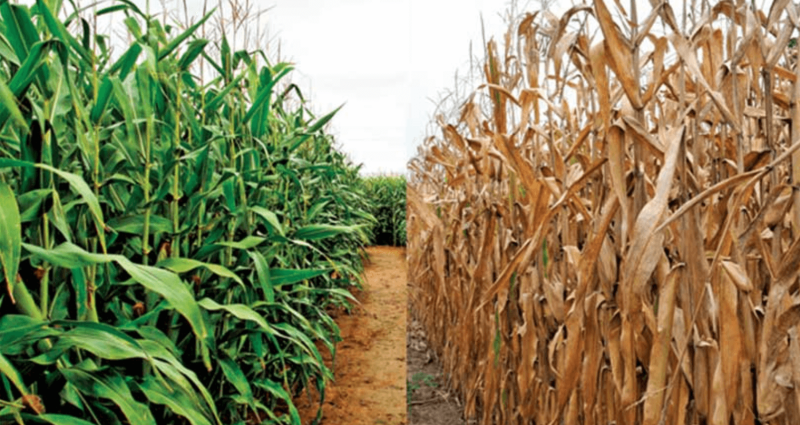Pakistan stands at a crossroads, facing the formidable challenges posed by climate change. The consequences of rising temperatures, changing rainfall patterns, and extreme weather events are already being felt, threatening the very foundation of our agricultural sector and food security. The increasing frequency and intensity of these climate-related events serve as a stark reminder of the pressing need to ensure food security and environmental sustainability through the adoption of climate-smart agriculture (CSA) practices.
The Urgency of Climate Change:
As per the World Bank, the impact of climate change on Pakistan’s agricultural sector is already evident, particularly in the vulnerable regions of northern Pakistan. At least two-thirds of the country’s districts have been affected by the extreme weather that has lashed the South Asian nation in recent months. Climate Change Minister Sherry Rehman described it as a “crisis of unimaginable proportions”. The torrential downpours come after a series of heat waves, highlighting Pakistan’s vulnerability to climate change. In April and May, temperatures reached above 40 °C for prolonged periods in many places. On one sweltering day in May, the city of Jacobabad peaked at 51 °C. Erratic monsoons and soaring temperatures pose significant challenges to agricultural productivity and the well-being of farming communities, necessitating urgent investments in CSA practices to ensure a stable food supply. Time is of the essence as we witness the consequences of inaction unfold before our eyes.
Growing Population, Shrinking Resources:
Pakistan is the world’s sixth most populous country, and its population growth rate remains high. It is estimated that Pakistan’s population will exceed 300 million by 2050. Pakistan’s rapidly growing population demands increased food production, placing immense pressure on the agricultural sector. According to some estimates, climate change could reduce Pakistan’s agricultural output by up to 30% by 2050. With limited arable land available, sustainable intensification is key. By adopting CSA practices and leveraging modern technologies, we can enhance productivity while minimizing the environmental footprint. It is crucial to empower farmers, particularly women, with knowledge, resources, and access to the latest farming techniques to unlock their potential and ensure food security for all.
Climate-Smart Agriculture: A Path to Sustainability:
CSA strategies are vital for building resilience against extreme events like droughts and floods, which frequently ravage our nation, threatening livelihoods, and food security. Climate-smart agriculture encompasses a range of practices and technologies that promote sustainable farming, resource conservation, and climate resilience. These practices include precision irrigation, crop diversification, and improved water management. By implementing these techniques, farmers can optimize the use of natural resources, reduce greenhouse gas emissions, improve soil health, and enhance overall productivity. CSA not only contributes to food security but also supports environmental sustainability and mitigates the impacts of climate change.
Conclusion:
As Pakistan grapples with the dual challenges of a growing population and climate change, the adoption of climate-smart agriculture practices becomes paramount. By embracing CSA, we can navigate the complexities of sustainable food production while safeguarding our natural resources. Through the integration of modern technologies, knowledge-sharing, and farmer empowerment, we can achieve higher yields, increased resilience, and reduced environmental impact. In this endeavor, SAWiE plays a crucial role as a catalyst for promoting climate-smart agriculture in Pakistan. SAWiE provides farmers with access to digital platforms, and advisory services that enable them to make informed decisions. Its role extends beyond advisory services. They actively engage with farmers through capacity-building programs, farmer field schools, and training workshops to enhance their understanding of CSA practices and provide them with the necessary skills to implement these techniques on their farms. By fostering a collaborative approach and building strong partnerships with government agencies, research institutions, and private sector stakeholders, SAWiE contributes to the wider adoption of climate-smart agriculture practices in Pakistan.
Climate-smart agriculture is a crucial pathway towards ensuring sustainable food production, enhancing resilience, and mitigating the impacts of climate change on Pakistan’s agricultural sector. It is our collective responsibility to ensure that future generations have access to safe, nutritious food and a thriving agricultural sector. By embracing climate-smart agriculture today, we can cultivate a sustainable tomorrow for Pakistan.

